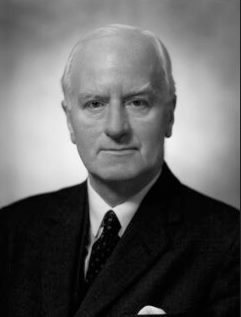This is the Canticle of Zechariah, father of John the Baptist, and is taken from Luke's Gospel (Luke 1:68-79) It is sung daily at Morning Prayer.
Sir Charles Villiers Stanford (1852-1924) thought to be one of our great British composers was actually Irish, born in Dublin, although educated at The University of Cambridge and then studied music in Leipzig and Berlin.
Whilst an undergraduate, he was appointed organist of Trinity College, Cambridge and was one of the founding professors of the Royal College of Music, where he taught composition for the rest of his life. He was also Professor of Music at Cambridge. His pupils included Gustav Holst and Ralph Vaughan Williams whose fame went on to surpass his own.
He is best remembered for his sacred choral compositions for church performance in the Anglican tradition. Along with Hubert Parry and Alexander Mackenzie, he was thought responsible for the renaissance of music in the British Isles.
 |
| C V Stanford in 1921 from Wikipedia |
Jesu Joy of Man's Desiring
This is the common title of the 10th and last movement of the cantata “Herz und Mund und Tat und Leben” (BVW 147) composed in 1716 and 1723. It is commonly played at weddings and Christian festive seasons of Easter and Christmas. Much of the music of this cantata comes from Bach’s Weimar period (the 1716 parts) finished in 1723 in Leipzig.
Johann Sebastian Bach (1685 – 1750) was a German composer and musician of the Baroque period. He was a highly respected organist in his lifetime, although not recognised as a composer of magnitude (possibly one of the greatest) until a revival of his works in the first half of the 19th century. He showed considerable skill in counterpoint and harmony. He was able to adapt rhythm, form and texture from abroad. He was a prolific composer of church music due to the demand for huge numbers of cantatas over the Christian year. It is thought her wrote over 300 with only around 200 surviving. He also wrote many other works sacred and secular. It is now agreed that his music has technical command, intellectual depth and artistic beauty.



